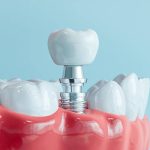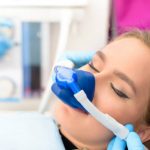It can sometimes be difficult to know if your dental issue is a serious problem that needs immediate attention. That’s where emergency dentistry in Vaughan can help. A dental emergency is any situation that requires prompt care to stop bleeding, save a tooth, relieve severe pain, or treat an infection. This could include a knocked-out tooth, swollen gums, cracked or broken teeth, or intense pain that doesn’t go away. The longer you wait, the worse the problem can get—sometimes leading to more serious complications. Let’s go over some common types of dental emergencies and what you should do if they happen.
What Are the Most Common Dental Emergencies?
Below are some common situations that can be considered a dental emergency:
Toothaches that won’t go away
A severe toothache may indicate a nerve infection or tooth decay that has reached the pulp (a deep cavity) or some type of foreign object or cavity in the gum or between the teeth. If you are unable to relieve the pain with over-the-counter pain medication and the pain gets progressively worse, you need to see a dentist.
Chipped or broken teeth
The first instinct someone may have after seeing their tooth cracked or broken is to stop the pain. Broken or chipped teeth can hurt and may feel sharp and irritate the tongue and cheeks. Even if you do not feel pain, broken teeth or chipped teeth can result in further injury or damage if they are not treated promptly.
Knocked-out teeth
This is one of the most urgent emergencies. If your tooth gets knocked out, try to place it back in the socket or store it in milk, then head to a dentist in Vaughan as soon as possible. Quick action can help save the tooth.
Swollen face or jaw
Swelling in your mouth, face, or jaw could be a sign of an infection or abscess. These are serious and may even spread to other parts of your body.
Lost fillings or crowns
If a filling or crown falls out, your tooth is left unprotected. This might cause pain or lead to more damage.
Bleeding that doesn’t stop.
After an injury, if your mouth keeps bleeding and doesn’t stop after 10 minutes of pressure, you should seek emergency help.
How to Handle a Dental Emergency?
If you find yourself in a stressful dental situation, here are ways to handle a dental emergency:
- Stay calmIt’s easier to think clearly when you don’t panic. Take a few deep breaths.
- Control any bleedingApply gentle pressure with a clean cloth or gauze to stop the bleeding.
- Protect the injured areaAvoid touching the area too much. Use a cold compress to reduce swelling or pain.
- Save broken or knocked-out teethIf you have a knocked-out tooth, pick it up by the crown (the top part), rinse it gently if dirty, and place it back in the socket or a small container of milk.
- Avoid using the injured toothTry not to bite or chew with the affected area until you can get help.
- Call a dental clinic right awayThe sooner you get help, the better your chances of saving the tooth or avoiding further problems.
When Should You Visit a Dental Clinic Immediately?
Not every dental problem needs emergency care, but if you have any of the issues listed above, especially pain, swelling, or bleeding that won’t stop, it’s best to get help immediately. Waiting too long can lead to infections, tooth loss, or more serious health concerns. It’s always safer to get it checked than to hope it goes away.
Need Help Fast? Concord Dental Is Here for You
Dental emergencies can be scary, but help is close by. At Concord Dental, we’re here to support you when you need it most. Whether it’s a sudden toothache, a knocked-out tooth, or swelling that just won’t go away, our friendly and experienced team is ready to provide quick and gentle care. Don’t wait for the pain to get worse. If you’re dealing with a dental emergency, call Concord Dental in Vaughan today. We’ll help you feel better and get back to smiling in no time!
FAQS:
Can I go to the emergency room for a dental emergency?
You can go to the ER if you have severe swelling, bleeding, or trauma. However, most dental emergencies are best treated by a dentist who can give the proper care for teeth and gums.
What should I do if I can’t reach a dentist right away?
Try to manage the pain with over-the-counter medicine and avoid chewing on the affected side. For swelling, use a cold compress and keep the area clean until you can get help.
3. How do I prevent dental emergencies in the future?
Brush and floss daily, wear a mouthguard during sports, and visit your dentist regularly to catch problems early before they become emergencies.







